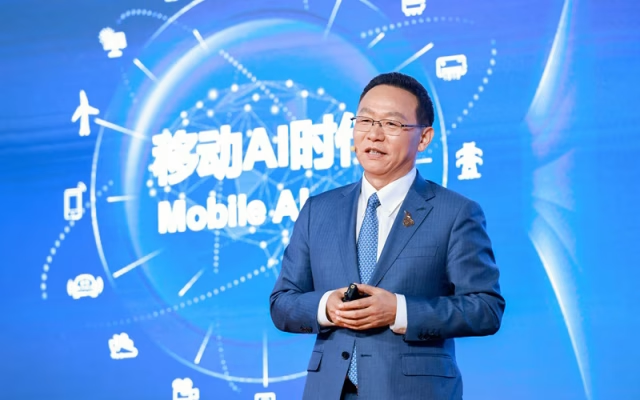SHANGHAI, Tuesday, June 17, 2025 (WNP): At the Mobile Broadband Forum (MBBF) Top Talk Summit held during MWC Shanghai 2025, over 150 influential figures from global telecom firms, AI innovators, and academia convened to discuss the transformative potential of integrating artificial intelligence with next-generation mobile technologies.
Huawei, a key driver of this shift, took center stage with a call to action: embrace the mobile AI era by unlocking the full promise of 5G Advanced (5G-A).
Opening the summit, David Wang, Executive Director of Huawei’s Board, outlined three key ways mobile AI is redefining the telecom landscape:
- AI Agents in Devices – Smartphones are evolving beyond apps to become hosts of AI agents that enhance everyday life and productivity.
- AI + IoT Integration – The fusion of AI with the Internet of Things is creating new gateways to an intelligent world.
- AI-Powered Networks – AI is now optimizing not just operations and maintenance, but also spectrum usage and energy efficiency.
Wang urged the industry to work together on five levers critical to 5G-A development: large uplink bandwidth, a robust device ecosystem, multimodal intelligent services, all-scenario IoT capabilities, and flexible business models.
Industry Use Cases: From Robots to Smart Logistics
The forum spotlighted real-world examples of how 5G-A and AI are revolutionizing industries. In manufacturing, the ultra-low latency and high bandwidth of 5G-A enable embodied AI—robots and machines that sense, decide, and act in real time. Chang Lin, CEO of Leju Robot, emphasized that “connectivity must become intelligent, not just stable,” allowing machines to make collaborative decisions instantly.
In supply chain and logistics, 5G-A and AI-assisted route planning are improving delivery timelines and cutting operational costs. Smart logistics platforms powered by AI are streamlining everything from fleet management to warehouse automation.
5G-A: More Than Connectivity, an Experience Platform
Huawei stressed that 5G-A must evolve from a mere connectivity pipeline into an experience platform—supporting billions of real-time interactions between mobile AI agents and users.
This shift demands a redesign of network infrastructure and operations. Huawei envisions deterministic networks that offer lossless, ultra-reliable, and adaptive connections across cloud, edge, and end-user devices.
Monetizing Experience: The New Telecom Currency
Unlike earlier models focused on data usage, 5G-A’s monetization strategy is centered on experience quality. Whether it’s cloud gaming or immersive multi-view sports streaming, users are showing willingness to pay for latency-free, high-performance services with guaranteed quality.
Li Peng, Huawei’s Senior Vice President and President of ICT Sales & Service, closed the summit by reinforcing 5G-A’s role as a catalyst for innovation:
“5G-A will empower carriers to deliver guaranteed, targeted experiences across all segments—individuals, homes, enterprises, and mobile users. This isn’t just about more traffic; it’s about monetizing quality and value.”
Li also emphasized the need to establish AI-centric infrastructure standards to guide future development. Such standards, he said, are essential to building wide-area, intelligent 5G-A networks capable of elastic scheduling, deterministic access, and ultra-reliable connections.
A Global Push Toward Intelligent Telecom
Huawei’s ongoing collaboration with global carriers, industry leaders, and researchers reflects a broader industry shift. As commercial deployment of 5G-A accelerates in 2025, especially across China, the Middle East, and Asia-Pacific, the fusion of AI and telecom infrastructure is expected to unlock new revenue streams and reshape the digital landscape.

The summit concluded with consensus: the telecom industry is at a pivotal inflection point. The deep convergence of AI and 5G-A not only promises new services—it marks the dawn of intelligent, experience-driven networks.




